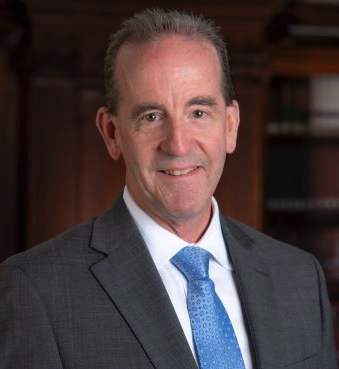
Frank Doyle is an individual who knows how to put his analytical mind to good use. The son of a chemical engineer, he followed in his father's footsteps and obtained three degrees in the same discipline, including a Ph.D. from Caltech. After a brief stint in industry, Doyle ventured into academia, initially taking up faculty positions at Purdue and Delaware. Later, he assumed leadership roles at the University of California, Santa Barbara, Harvard University, and most recently, at Brown University.
Throughout his career, he amassed an impressive 50 patents and conducted groundbreaking research on medical devices for diabetes, which led to his induction into the National Academy of Engineering and the National Academy of Medicine. These achievements alone would be considered sufficient by most people but not Doyle; he dedicated his free time to nurturing his passion for soccer refereeing, starting as a weekend volunteer for his kids and eventually becoming a fully accredited NCAA official.
Doyle’s soccer journey began when his daughters, then aged six and seven, joined teams in the American Youth Soccer Organization (AYSO). Reflecting on his initial venture into the sport, he recalls, "We had a volunteer recreation league for youth soccer, so parents had to step in and volunteer as coaches and referees. I played in high school, so I figured I could do it." He quickly discovered that AYSO could also be interpreted as 'All Your Saturdays are Over.' However, the sacrifice of his free time was compensated with lasting moments of camaraderie and team spirit. "There's nothing more fulfilling than engaging in volunteer work that brings you genuine joy," he remarks.
Doyle discovered that soccer refereeing, much like leadership, demands concentration and devotion. His unwavering dedication to both propelled him to earn consecutive referee badges, a prerequisite for progressing to higher levels of competition. He navigated through the ranks of youth and amateur adult soccer and eventually reached the collegiate level. This path was far from easy, however. "In order to certify for the NCAA, I had to get a medical clearance, complete a fitness test (timed running events), pass a written test, and be observed and endorsed by active referees." This achievement is even more impressive when considering he accomplished it alongside his position as Dean of Engineering at Harvard.
Doyle’s enthusiasm and drive not only fueled his love for the sport, but also provided him with valuable leadership skills that extend well beyond the field. Here are some of the key lessons he learned from his experience.